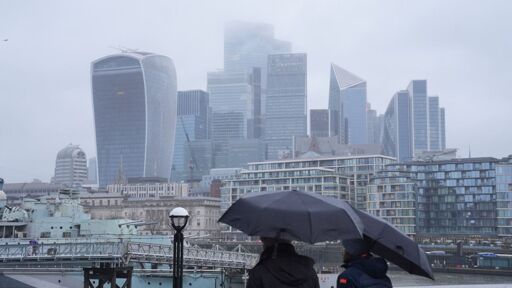Britain’s economy will be among the hardest hit by the global trade war and inflation is set to climb, the International Monetary Fund (IMF) has warned – as it slashed its UK growth forecast by a third.
In a sobering set of projections, the Washington-based organisation said it was grappling with “extremely high levels of policy uncertainty” - and the global economy would slow even if countries manage to negotiate a permanent reduction in tariffs from the US.
Echoing earlier warnings about the risks to the global financial system, the IMF said stock markets could fall even more sharply than they did in the aftermath of Donald Trump’s “Liberation Day” tariffs announcement, when US and UK indices recorded some of their largest one-day falls since the pandemic.
It comes as Chancellor Rachel Reeves prepares to meet her US counterpart Scott Bessent at the IMF’s spring gathering in Washington this week.
She is hoping to negotiate a reduction to the 10% baseline tariff the US president has applied to all UK goods. Steel, aluminium and car exports face an additional 25% tariff.
…
The UK economy is expected to grow by just 1.1% this year, down 0.5 percentage points from the 1.6% the IMF was predicting in January. Growth picks up to 1.4% next year, still 0.1 percentage points lower than the January forecast.
Along with recent tariff announcements, the IMF blamed the UK’s poor performance on a rise in government borrowing costs, which has in part been triggered by growing unease among investors over the fate of the US economy.
When borrowing costs rise, the chancellor has to rein in public spending or raise taxes to meet her fiscal rules. That can weigh on economic growth.
It also pointed to problems in the domestic economy, mainly “weaker private consumption amid higher inflation as a result of regulated prices and energy costs”.
In a blow to the chancellor, the IMF warned that the UK would experience one of the largest upticks in inflation because of utility bill increases that took effect in April.
It upgraded its inflation forecast by 0.7 percentage points to 3.1% for 2025, taking it even higher above the Bank of England’s 2% target and deepening the dilemma for central bankers who are also grappling with weak growth.



Glad I locked in a 18 month energy deal but I am wondering if I should have gone for 2 years.